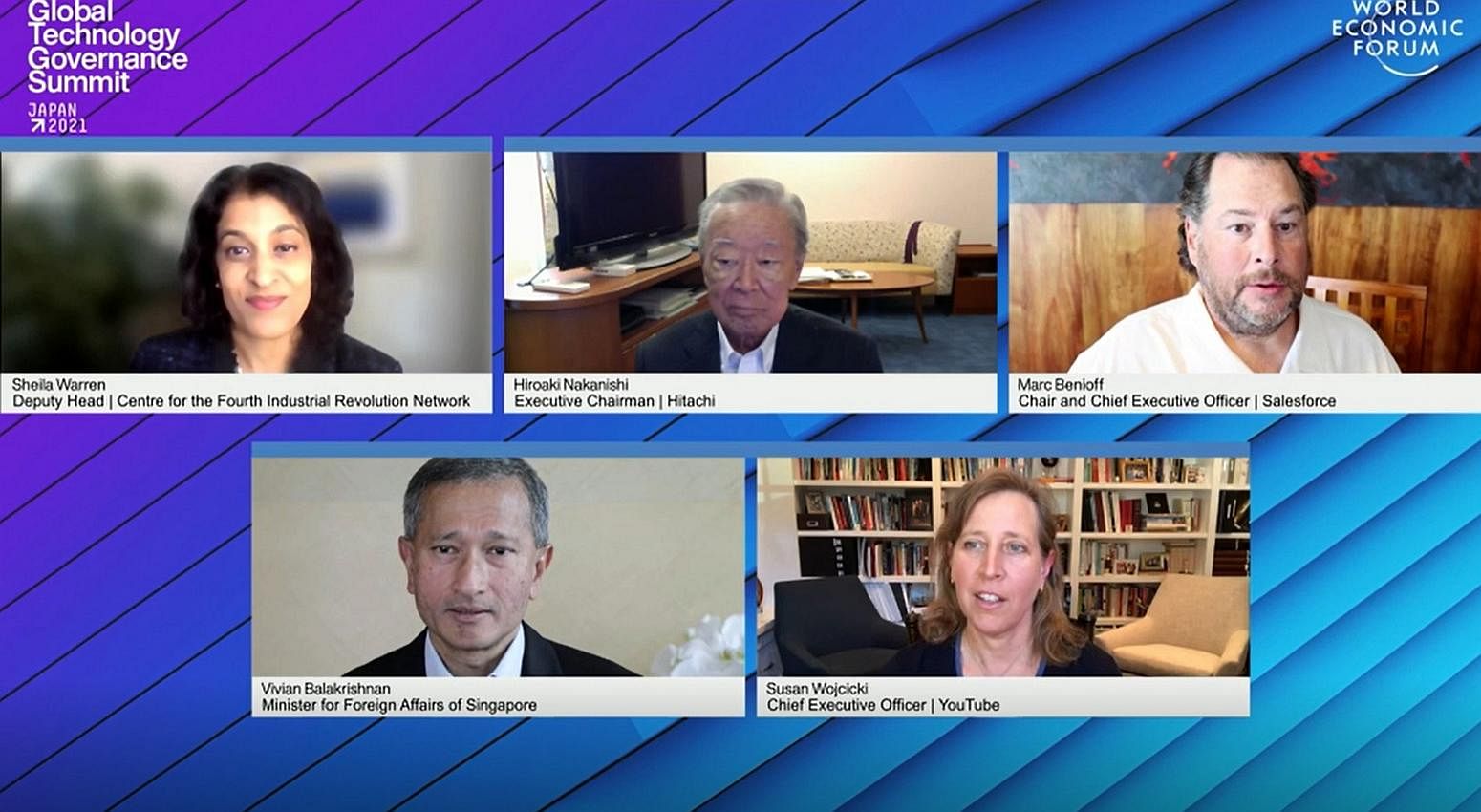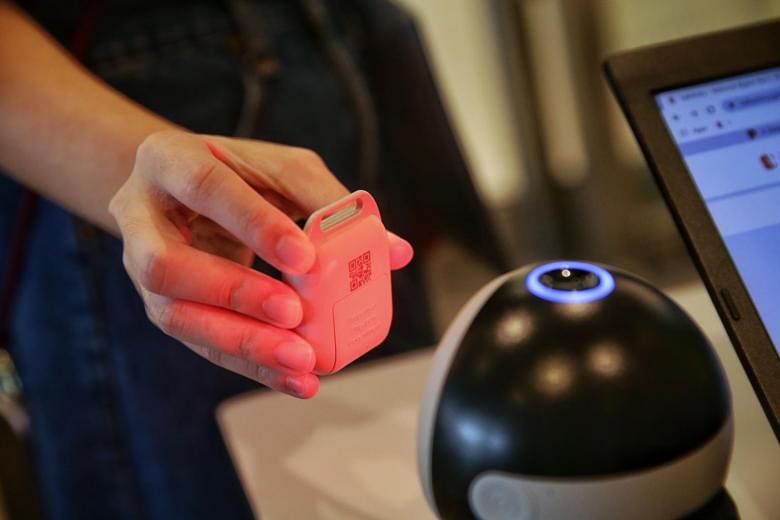SINGAPORE - There are silver linings in the tragedy of the Covid-19 global pandemic, such as how the outbreak has boosted the use of existing technologies, said Minister-in-charge of the Smart Nation Initiative Vivian Balakrishnan on Tuesday (April 6).
In Singapore, this has helped the Government trace the close contacts of coronavirus patients faster and allowed most government transactions to be done online, said Dr Balakrishnan, who is also Minister for Foreign Affairs.
"Covid-19 did not invent or create new technologies... What it's done is to really turbocharge the innovation and the use of those (existing) technologies," he said, noting that globally, politicians have rolled out programmes for a greener, fairer and smarter world.
He was speaking at a panel discussion on Technology Governance Outlook at the virtual Global Technology Governance Summit organised by the World Economic Forum (WEF) and jointly hosted with Japan.
More than 2,000 leaders from government, business and civil society will gather until Thursday for the three-day virtual meeting.
Participants will discuss key issues such as ethical artificial intelligence, blockchain and data privacy, together with other technologies powering the Fourth Industrial Revolution.
The discussions will be a key feature of talks when the WEF meets in Singapore in August.
On Tuesday, Dr Balakrishnan cited how the coronavirus pandemic has propelled tech use in Singapore.
For instance, the need to quickly trace close contacts of Covid-19 patients resulted in the development of technology by the Government that uses Bluetooth signals - the TraceTogether contact-tracing system.
With both the TraceTogether app or token and the SafeEntry check-in system at venues here, the authorities now take 1½ days or less to identify and quarantine close contacts, down from the previous average of four days.
The need for accurate information also saw the Government sending updates on the Covid-19 situation through the Gov.sg WhatsApp channel.
The channel grew from 7,000 subscribers in January last year at the onset of the outbreak here to 1.2 million subscribers now.
Dr Balakrishnan also said that 95 per cent of all Singapore Government transactions with people and businesses are done online, noting that in the past, a push was needed to achieve such a figure.
For example, a feature was launched last year on the GoBusiness Licensing portal to help businesses navigate available government assistance schemes. The portal provides a fast way for food service businesses to apply for licences.
"Covid-19 has been... a stress test of our competence, capability, technology and social capital," said Dr Balakrishnan.

During the panel, other topics covered included the importance of fighting climate change, how public trust is vital in using tech and data, and the issue of online content, like video clips, that is legally allowed but can cause harm.
Ms Susan Wojcicki, chief executive of video-streaming site YouTube, said that it is hard for governments to find the right way to regulate such content, which she noted can also change very quickly, such as misinformation arising from Covid-19.
"There needs to be a lot more discussion between companies, platforms... and governments (on such content) so they understand and we can make the best decisions together to keep our communities safe," said Ms Wojcicki.


